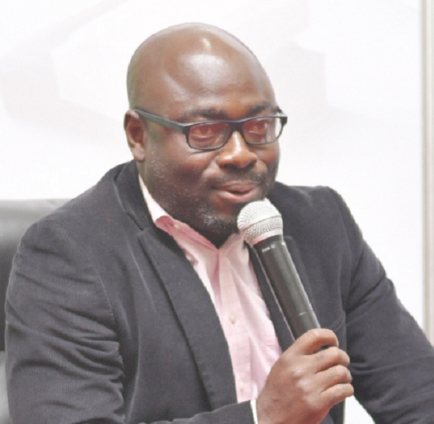Economist Professor Lord Mensah has advised government to be measured in its expectations of signing a deal with the International Monetary Fund (IMF) before the 2023 budget presentation.
According to him, the IMF would rather look at the 2023 budget, which will be presented in November 2022 to finalise a programme with Ghana.
He urged government to rather focus on using the budget to rebuild investor confidence on toning down on borrowing, while sending signals of debt restructuring to the IMF.
This, Professor Mensah argued will give government some space to negotiate with the IMF from a strong position.
“I don’t think it is possible to get a deal with the IMF before the middle of November when we get ready to present the 2023 budget. My advice will be that we should rather use the budget to position the government for an IMF programme”, he stated.
He explained that the government and the IMF have a lot of processes and fine-tuning to do before signing an economic bailout deal.
He cautioned that the IMF will not just enter into a deal because a country is economically desperate for assistance.
“If you study the IMF carefully, they always want your debt stock to be at sustainable levels before they give you assistance. If your debt levels are bad, the IMF will ask you to do something about it before assisting the country”.
Citing Ghana’s debt levels as worrying, he stated that it is not surprising that the IMF is urging the government to restructure its debt as first requirement as part of the negotiations.
Providing some recommendations, Prof. Mensah advised that it will be prudent for government to come out and engage relevant stakeholders in the domestic financial sector to calm the market.
Such a move, he stressed will not only stabilise the domestic bonds market, but will bring some level of certainty among investors who are currently in the dark on the next move of government.
He warned that keeping investors in the unknown only sparks speculations which aggravate the economic challenges of the country.
He partly blamed the situation on the high inflation and the cedi depreciation, which he warns may get worse.
Latest Stories
-
Effiduasi market women hit streets in demand for access to stalls after paying contractor
7 seconds -
GNAT urges gov’t to prioritise education sector challenges just as it’s tackling energy issues
3 minutes -
Free SHS can’t continue; parents must pay for feeding, accommodation – NAGRAT President
7 minutes -
Mahama demands update from IGP on election-related deaths in 2020, 2024
14 minutes -
It’s a boy! Moses Bliss and wife welcome first child
26 minutes -
Motorists stranded as fuel shortage hits Damongo
28 minutes -
Fuel shortage hits Yendi and Damongo, residents appeal for swift intervention
51 minutes -
Prof Bokpin endorses Finance minister-designate’s push for additional IMF funding
60 minutes -
Sammy Crabbe criticises NPP leadership for party’s defeat; eyes chairmanship in 2026
1 hour -
There’s no formula for how a President decides to roll out his appointees – Dr Osae-Kwapong
1 hour -
Parliament suspends sitting for committee to vet ministerial nominees; orient new legislators
2 hours -
Close SHSs to address feeding, other issues – PTAs tell government
2 hours -
Uganda’s controversial tweeting general quits X
3 hours -
Daily Insight for CEOs: Building resilient supply chains in Ghana’s evolving market
3 hours -
Karpowership Ghana renovates St Mark Anglican School in Essikado
3 hours

